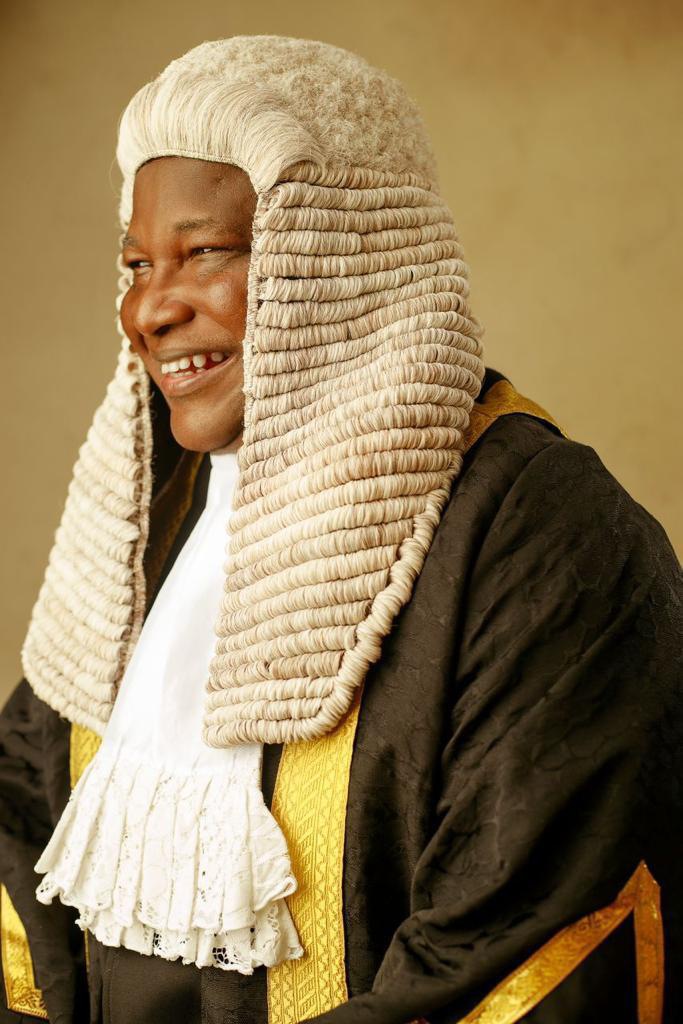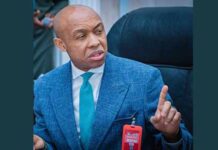In this interview with Ise-Oluwa Ige, a Lagos-based silk and Law lecturer, Wahab Kunle Shittu, SAN, spoke on a number of topical issues including how the Economic and Financial Crimes Commission, EFCC, can compel ex-Governor of Kogi State, Yahyah Adoza Bello, to attend court for his trial, the brewing constitutional crisis in Rivers State and the assessment of the administration of the outgoing Chief Justice of Nigeria, CJN, Justice Olukayode Ariwoola, GCON.

For almost two months now, the EFCC has made futile efforts to arrest the immediate past governor of Kogi State, Yahaya Bello. It is now so bad that the fleeing ex-governor is dictating where he should be tried. How do you react to this?
The refusal of the ex-governor of Kogi State to appear in court and his attempt to dictate the court where he should be tried undermines the rule of law. No individual is above the law. The integrity of the judicial system is paramount and the court must ensure that it upholds this integrity and retains the trust of citizens in the judiciary.
However, from a vantage position, I make bold to say that the developments in Kogi concerning the allegation of corruption leveled against the ex-governor, Bello, betrays a classic spectacle of democracy at its finest. This is because an agency of the government has the force of law and could deploy brute force where necessary to achieve its constitutional objectives. Where the same agency with the force of law and arsenal now extends the honor to a Nigerian to come and state its case against the agency, I think that x-rays the beauty of democracy. The EFCC has the backing of the law to effect arrest of the ex-governor by any means necessary but has chosen not to use force but rather diplomacy. The agency has the intelligence to effect an arrest at any time of the day but rather extended the courtesy to the ex-governor to come forward voluntarily. The question one will then ask is: how long will the hide and seek last?
S.36 of the 1999 Constitution (as amended) provides that a person shall be presumed innocent until proven guilty. S.131 of the Evidence Act, 2011 provides that a person who asserts must prove. The standard of proof is beyond reasonable doubt, and the burden of proof rests on the prosecution. The balance sheet of these provisions inter alia is that the law is in favor of the ex-governor as the EFCC has a heavy burden to discharge. The governor does not have to prove his innocence because the constitution already assumed that in his favor but he has to come forward in order to take advantage of these provisions which are already in his favor.
From the look of things however, it appears that the ex-governor is helping the EFCC to make its case by his defaults, which suggests that he has no confidence either in the judiciary or the constitution.
On the question of choice of jurisdiction for his trial, it is not the prerogative of any individual no matter how highly placed to dictate to the law. Accordingly, neither the ex-governor nor anyone can dictate to the law by choosing where he or she wishes to be tried. In the same vein, no one, no matter how highly placed, can choose the judge to sit on his matter, or choose the jury to decide his matter, or choose a decision to be pronounced by the court, or choose the decision to obey. The law already covers the field on all these issues. Therefore it is not the call of the ex-governor to make.
However, if in the course of his trial, he is of the view that the process is skewed against him and that he is not likely to get justice because the judge is biased against him, he can write to the Chief Justice to assign his case to another judge or ask the sitting judge to recuse himself. In any case, he cannot do any of the above from his hiding or the comfort of his house. The presumptions, the favors, etc., can only be claimed in the court.
The court can issue public summons on the ex-governor of Kogi state having been served a warrant of summons and still refused arrest. However, for the ex-governor to dictate where and how he should be tried is very wrong because nobody is above the law. There is evidence before a Judge of the High Court that a person against whom a warrant of arrest has been issued has absconded or is concealing himself as to frustrate the execution of the warrant on him, such Judge may publish a Public Summons in writing requiring that person to appear at the specified place and time not less than 30 days from the date of publishing the summons. Hence, the court can serve the public summons on the ex-governor of Kogi state who has subsequently refused arrest.
Public Summons Under the ACJA, where there is evidence before a Judge of the High Court that a person against whom a warrant of arrest has been issued has absconded or is concealing himself as to frustrate the execution of the warrant on him, such Judge may publish a Public Summons in writing requiring that person to appear at the specified place and time not less than 30 days from the date of publishing the summons.
See section 60 of ACJL Kano and section 41 of ACJA. There is no provision for public summons in ACJL Lagos. As to how a public summons is published, see section 42 of ACJA, section 60 ACJL Kano. See section 59 (3) ACJL Kano on public summons in respect of warrant of arrest.
A serious constitutional crisis appears to be brewing in Rivers State following an unresolved legal dispute surrounding the purported decampment of majority of the members of the state House of Assembly to the opposition All Progressive Congress, APC. For instance, the legality of the budget bill passed by the state lawmakers and being executed by the state governor is presently an issue following a recent Appeal Court verdict in favour of the majority state lawmakers. How do you react to this?
Government is a continuum. Accordingly, the law abhors a vacuum. At the risk of any analysis paralysis given the further and most recent development on the Rivers political rollercoaster, I will attempt to entertain our question and make a note afterward on the latest development regarding the subject. I will attempt to give a brief background.
To start with, the constitution provides for the composition of a State House under s.91 CFRN 1999 (as amended). The number, according to the constitution, must not be lower than 24 or above 40. For a better part of the first year in office, the State House of Assembly of Rivers has been bedeviled or plagued by one constitutional issue or the other. The legislative functions of the House have been undertaken by a number less than prescribed by the Constitution. The first question that this raises is the constitutionality or otherwise of the legislative functions of members that is less than the prescribed number under the law.
The second question is that the Appeal Court’s ruling appears to be a significant development in the Rivers State House of Assembly crisis. By nullifying the negative court orders, the ruling seems to have legitimized the Martin Amaewhule faction’s position, enabling them to assume their duties.
The 7-day ultimatum issued to Governor Fubara to re-present the state budget suggests that the Amaewhule faction is eager to exercise its constitutional powers. This move may lead to a potential showdown between the legislative and executive branches of the state government.
It’s crucial to watch how this situation unfolds, as it may have implications for the political landscape in Rivers State and potentially impact the state’s governance and development.
How do you assess the tenure of the outgoing Chief Justice Olukayode Ariwoola and what are your expectations from the incoming CJN?
Justice Olukayode Ariwoola, Grand Commander of the Order of the Niger (GCON) is by far one of the most remarkable, respectable, distinguished and reputable legal luminary who has become an institutional figure over the years and has set a stellar record and precedent of excellence, character, brilliance, humility, rectitude and principle, not only in the legal helm or space alone but also in all domains and spheres both locally and Internationally.
His Honorable Lordship, Justice Olukayode Ariwoola GCON, is a man for whom I have a great deal of respect and admiration, a man who has well paid his dues not only in legal practice but also in the administration of justice as the Chief Justice of Nigeria.
In giving a brief review of his administration and tenure as the Chief Judge of Nigeria, His Lordship, Justice Olukayode Ariwoola, I would say made some very significant contributions to the jurisprudential legal framework of the country, Nigeria.
During his tenure as Chief Justice of Nigeria, there were remarkable efforts in the fight against corruption practices especially in the public sector, efforts on the part of the Judiciary were made in helping fast-tracking the trial of corruption and financial related crimes in the country by the Corruption and Financial Crime Cases Trial Monitoring Committee (COTRIMCO) inaugurated in 2018 by the former Chief Justice of Nigeria, Hon. Justice W.S.A Onnoghen.
His administration encouraged and created a fair environment in the prosecution of corruption or financial malpractice by pushing the judiciary as a force to discourage financial-related offenses. Although, people may argue to the effect that these efforts were barely significant or noticeable as corruption is still very much rampant and even prevalent in the judiciary itself. That notwithstanding, His Lordship, Justice Olukayode Ariwoola has stood and continues to admonish the judiciary on the extreme importance of integrity, fairness and justice.
In His Lordship’s final legal year speech in November 2023, at Abuja, Hon. Justice Olukayode Ariwoola, made some applaudable achievements during his administration, His Lordship noted “The ICPC was able to successfully secure a total number of 10 convictions while the sister agency, EFCC was able to secure 1,094 convictions within the same period under review,”
On the part of the Supreme Court, Hon Justice Olukayode Ariwoola GCON revealed it presided over 1,271, comprising of motions and appeals, from the 12th day of September, 2022 to the 11th day of July 2023,
“Out of these, we heard 388 political appeals, 215 criminal appeals, and 464 civil appeals.
Similarly, the court considered a total number of 49 criminal motions, 153 civil motions, and 2 political motions. In his speech, Justice Olukayode Ariwoola said
“Between the 30th day of September, 2022 and the 11th day of July, 2023, the Supreme Court delivered a total number of 251 judgments.
“Out of these, 125 were political appeals, 81 were civil appeals and 45 were criminal appeals.
“Within the period under review (precisely 10 months’ duration), a total number of 91 Rulings were delivered by the Honourable Court,” the CJN added. Ariwoola has worked diligently to address the shortage of justices on the Supreme Court bench, striving to meet the constitutional requirement of 21 justices. Despite not fully achieving this yet, he remains committed to this goal as a key part of his legacy.
Additionally, he has advocated for reducing the burden on the judiciary by encouraging alternative dispute resolution mechanisms and limiting unnecessary appeals to the Supreme Court.
Throughout his term, Ariwoola has also focused on maintaining high standards among judicial officers, warning against behaviors that could undermine the judiciary’s integrity and promising punitive measures against those who fail to uphold these standards
Overall, Ariwoola ‘s tenure has been marked by efforts to strengthen the judiciary’s capacity, uphold its independence, and restore public confidence in its impartiality and effectiveness.
From the report above, by His Lordship, the efforts made by the Judiciary in ensuring that there is minimal delay in Justice is appreciable as the Supreme Court particularly considered more cases and delivered more judgments than the very average numbers in the past where it took a long time even before a matter is heard by the Apex court thereby causing a major clog in the administration of justice for of what benefit is Justice if it has been delayed.
So, in fairness, the efforts of the Judiciary ably led by His Lordship, Justice Olukayode Ariwoola are commendable and must be appreciated.
However, in every sense of utmost respect to His Lordship, Justice Olukayode Ariwoola, His Lordship’s administration has not been one without hiccups.
Several critics argue and contend that His Lordship has been somewhat politically partisan and affiliated. And they have also argued that His Lordship has not been direct in facing problems as it affects the judiciary but rather has instead been too associated with prominent members in politics. The problem of the judiciary persists and is ever-increasing, not enough efforts have been made to protect the bench from political influence, especially from the executive. There still exist different levels of administrative mis-competence and poor adroitness.
Nevertheless, the overall performance of His Lordship, Justice Olukayode Ariwoola GCON is still one that despite several hitches, is a fair model of progress by the judiciary arm of government. Significant achievements have been made in fostering and upholding justice.
And I sincerely congratulate His Lordship, in advance, and wish His Lordship, Justice Olukayode Ariwooola GCON, a happy retirement from the bench as well as the Apex Court.
My expectations for the incoming Chief Judge of Nigeria are simple; the incoming Chief Justice should be fair-minded. The Chief Justice of Nigeria should be a person of undaunting character, an emblem of integrity and unwavering uprightness, and a flair for professional ethics.
And as a leader particularly of an arm of government that is essentially sensitive and important in fostering the continuation of hope in society and the proverbial “common man”, the Chief Judge of Nigeria must undoubtedly be a leader by example and must single himself out for selflessness while administering justice fairly and equally.
The incoming Chief Justice of Nigeria should particularly pay close attention to the persistent problems, issues, and challenges that have faced the judiciary across all levels of the Federation and provide sustainable solutions and alternatives and should continue to portray not only the judiciary in an admirable light but also the legal profession as a whole.










